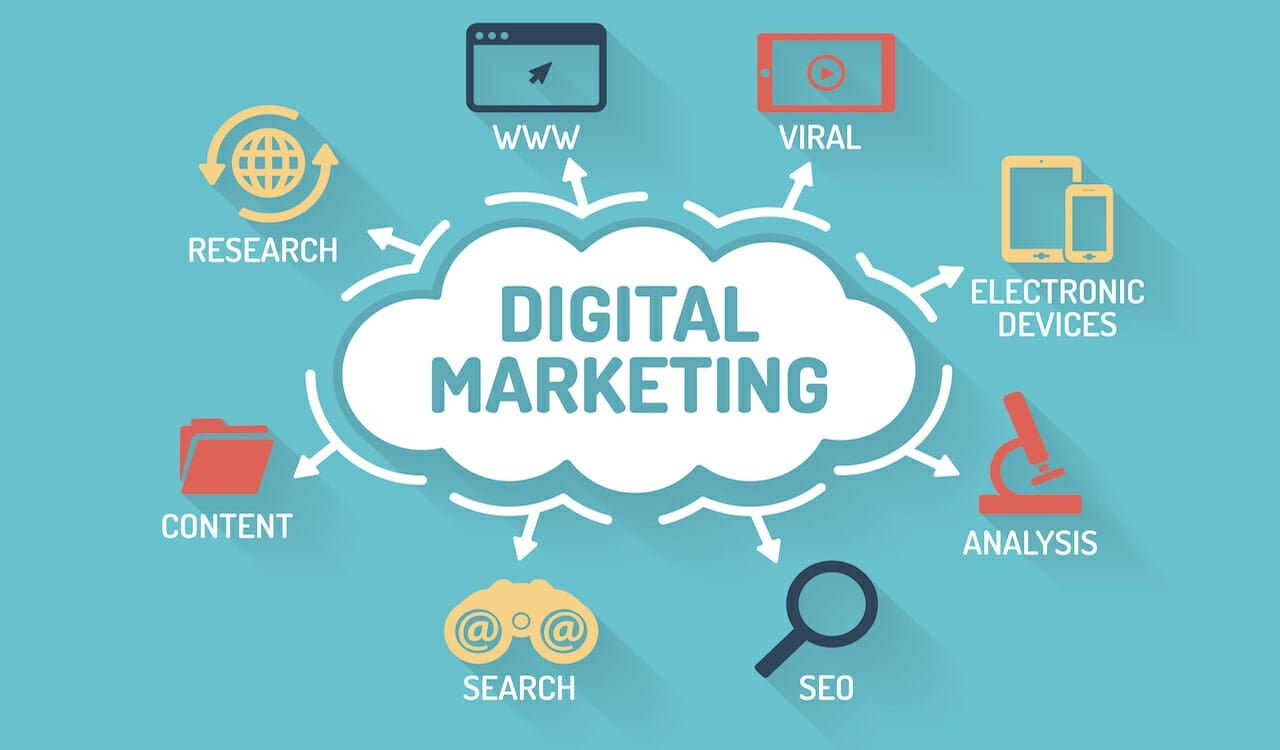In today’s hyper-connected world, your online reputation is one of your most valuable assets. Whether you’re a small business or a global enterprise, how people perceive your brand online can make or break your success. From the way you engage with customers on social media to how your website appears in search results, every element of your digital marketing strategy can significantly impact your brand’s image. But how exactly does digital marketing services influence your online reputation? Let’s dive in and explore the dynamic relationship.
What is Online Reputation Management?
Defining Online Reputation
Online reputation refers to how your brand is perceived across the internet. It involves customer reviews, social media presence, and search engine results. Just like in real life, a strong, positive reputation can earn you loyalty and trust, while a poor reputation can lead to lost sales and business opportunities.
The Role of Digital Marketing in Reputation Management
Your digital marketing strategy is the foundation of managing your online reputation. Whether you’re responding to customer feedback on social media or optimizing your website to rank for positive keywords, everything you do online contributes to how people perceive your brand.
Why Your Online Reputation Matters
Your online reputation can impact customer decisions, investor confidence, and partnerships. With 93% of consumers reading online reviews before making a purchase, one negative review or poor feedback can harm your reputation. Digital marketing helps you build and protect your reputation by ensuring that your online presence reflects your brand values.
Key Digital Marketing Services that Affect Your Online Reputation
Search Engine Optimization (SEO)
SEO is a critical part of reputation management. When people search for your brand online, what do they find? If negative reviews or outdated content appear, it could harm your brand. A robust SEO strategy ensures that positive content about your brand ranks higher than any negative search results.
Social Media Management
Social media is a double-edged sword: while it can help you engage with your audience, it also leaves room for public complaints. Effective social media management allows you to respond quickly to feedback, resolve complaints, and build positive relationships with your followers.
Content Marketing
Content marketing is a powerful tool for building trust and credibility. High-quality, informative content positions you as an authority in your field, helping to shape a positive online image. Blog posts, case studies, and other content pieces can help counter negative perceptions and highlight your strengths.
Paid Advertising and Reviews
Paid advertising, including Google Ads and social media ads, can help boost your online presence. However, paid ads should be handled carefully. They should align with your brand’s messaging and help foster a trustworthy image. In addition, customer reviews are essential. Actively soliciting positive reviews can help overshadow any negative ones, improving your brand’s reputation.
The Importance of a Digital Marketing Strategy for Reputation Management
Crafting a Digital Marketing Strategy
A clear digital marketing for it companies is essential for managing your online reputation. It involves aligning your marketing efforts with your reputation management goals, ensuring that each element of your online presence works toward strengthening your brand image.
Aligning Your Reputation Goals with Marketing Goals
For your reputation management to succeed, it must align with your overall marketing objectives. If you’re aiming to boost brand trust, your marketing strategy should focus on transparency, consistent messaging, and engaging content.
Case Study: How a Strategy Can Change a Brand’s Reputation
Take the example of a company that was struggling with negative reviews on Google. By implementing a comprehensive digital marketing strategy, they focused on improving SEO, building positive content, and responding to reviews. Within months, their online reputation drastically improved, demonstrating the power of an aligned digital marketing strategy.
How SEO Shapes Your Online Reputation
The Impact of Search Engine Results on Reputation
Search engine results are often the first impression customers get of your brand. If your website ranks high for positive keywords and your business appears as a trusted source, you’ll build a reputation as an industry leader. Conversely, if your website ranks for negative keywords, your reputation could take a hit.
Building Authority with SEO
SEO helps build brand authority by ensuring your content is visible and easily accessible. By targeting the right keywords, creating relevant content, and gaining quality backlinks, you can build a positive online presence that improves your reputation.
Managing Negative Search Results
Unfortunately, negative reviews or mentions can show up in search results. SEO allows you to take control of these results, either by suppressing them with positive content or by responding to negative reviews in a professional, constructive manner.
The Role of Social Media in Reputation Management
Leveraging Social Media for Positive Engagement
Social media allows brands to connect directly with their audience. Regularly posting relevant content, engaging with followers, and maintaining a friendly tone can positively influence how your brand is perceived.
Handling Customer Feedback and Complaints
No brand is perfect, and complaints are inevitable. How you handle them online is a direct reflection of your company’s values. Addressing customer complaints promptly and respectfully can transform negative experiences into positive outcomes.
Crisis Management on Social Media
Sometimes, a crisis may arise that threatens your online reputation. Social media can help you manage this crisis. By responding quickly, addressing the issue, and being transparent, you can prevent long-term damage to your brand.
Conclusion
A strong online reputation is essential for business success, and digital marketing services are central to shaping how your brand is perceived online. From SEO and social media management to content creation and review management, every element of your digital marketing strategy contributes to your reputation. By implementing a cohesive strategy, IT companies and businesses in all industries can foster a trustworthy, credible online presence that attracts customers and drives growth.
FAQs
- How long does it take to improve my online reputation?
Improving your online reputation can take anywhere from a few weeks to several months, depending on the severity of negative content and your efforts. - Can digital marketing services help recover a damaged reputation?
Yes, with the right strategy, digital marketing services like SEO, content marketing, and social media management can help repair a damaged reputation. - What is the role of customer feedback in digital marketing?
Customer feedback is crucial in shaping your reputation. Positive reviews can improve your reputation, while negative feedback, when addressed properly, can showcase your commitment to customer satisfaction. - Is SEO enough to manage my online reputation?
SEO is a key component of reputation management, but it should be part of a broader strategy that includes content marketing, social media engagement, and review management. - How can social media campaigns help in reputation management?
Social media campaigns help you engage with customers, address concerns, and showcase your brand’s values, all of which can have a positive impact on your online reputation.












Leave a Reply